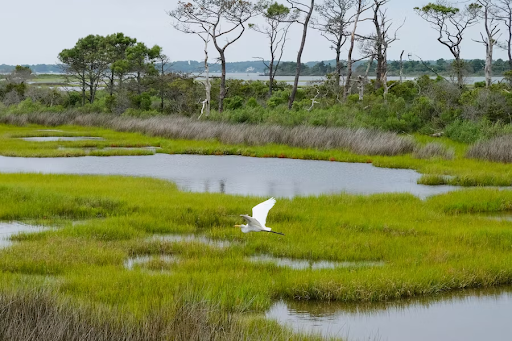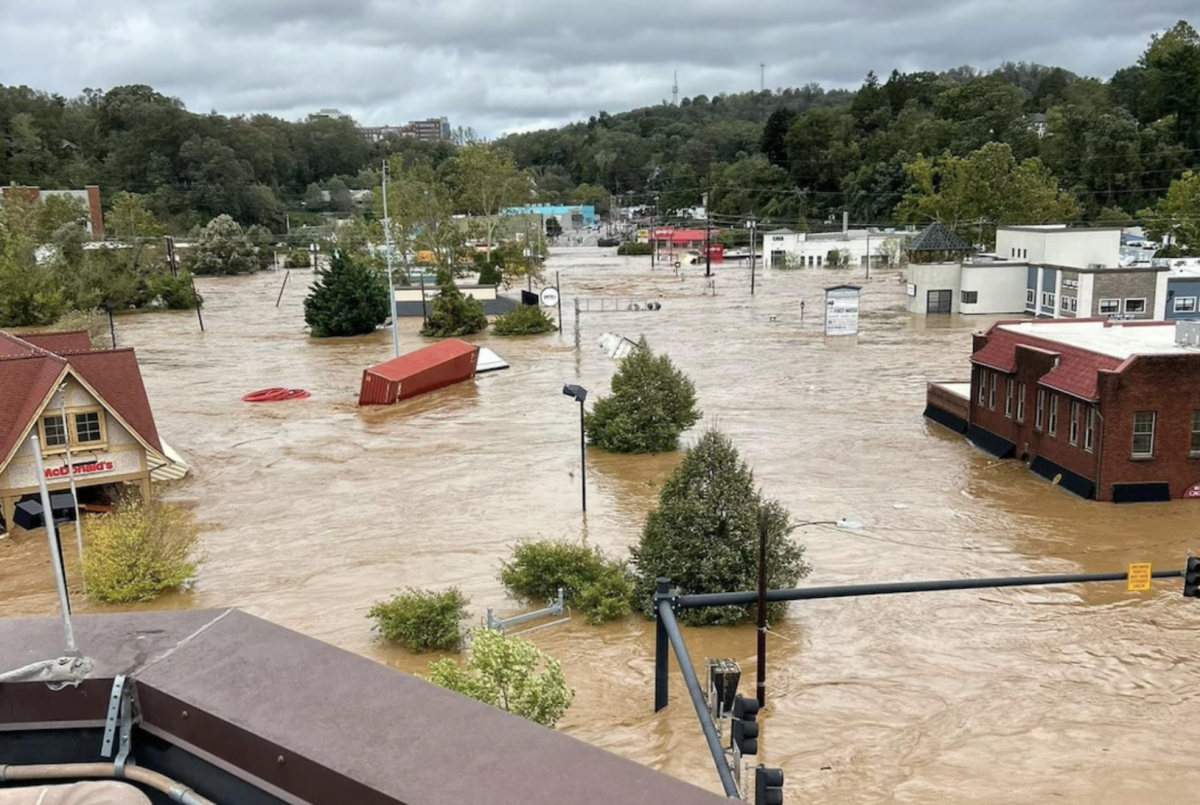Disappearing wetlands: recent legislation erodes at ecosystem protection

Wetlands across the country are disappearing at rapid rates, leading to accelerated deterioration of local ecosystems.
May 2, 2023
North Carolina’s coastal regions are a hallmark of the state topography and home to countless lifeforms- including river herring, killifish and grass shrimp. However, it stands to lose 40% of its wetlands by 2070, according to a report released by environmental organization Climate Central.
Green Hope Marine Science Club leader Radhika Chaudhary (‘25) described the importance of these wetlands. “Different strains of life are able to develop into species as we know today [because they] originated in [these] small streams of water,” said Chaudhary.
Although the bill has received national attention, scientists have warned about wetland loss for decades. The United Nations estimates that roughly 35% of the world’s wetlands were lost between 1970 and 2015, with a sharp increase since 2000.
Green Hope AP Environmental Science teacher Mr. Benjamin Rush explained how wetlands play a critical role in local environments, acting as natural buffers against hurricanes, sea level change and harmful agricultural practices. They also serve as natural filters for pollutants, mitigate erosion and regulate water quality in nearby bodies of water.
“In terms of impact on the community, the most important benefit is that they control floodwaters,” said Mr. Rush.
In recent years, rising sea levels increasingly risk flooding wetlands, particularly near coastal regions. Wetland destruction also places additional burdens on remaining wetlands, which are further impacted by invasive species, pollutants and construction of pipes and waterway channels.
Some studies have pointed toward urban development as a factor in the loss of wetlands. Construction development discourages wetland growth and results in shoreline “hardening,” separating wetlands from surrounding areas and accelerates wetland loss.
However, much of the struggle for protecting the wetlands happens in government institutions.
In January, President Biden vetoed federal legislation that endangered national waterways to protect an Environmental Protection Agency (EPA) policy. The bill prevents businesses and farms from using thousands of areas across the country with wetlands, streams and waterways.
Although the law failed to pass, legislators have passed similar bills that infringe upon wetland protection. This includes a recent case in Texas where a judge paused federal waterway protections in favor of “economic development.”
While legislation has an impact on wetland destruction, Chaudhary believes that mitigating loss begins with regulating larger corporations. “What’s amazing is that the most damage comes from the top companies and [that] influences our culture of what we use that’s unsustainable,” she said.
As environmental legislation throughout the county stands to make an impact, wetland loss continues to be a prevalent issue across North Carolina.

















































































